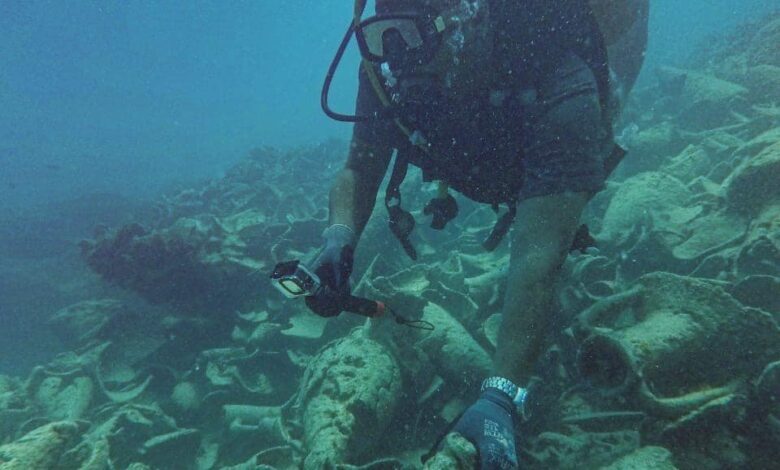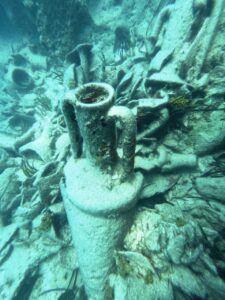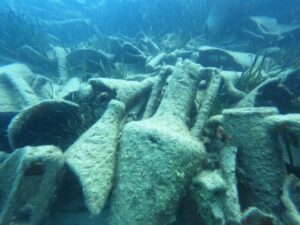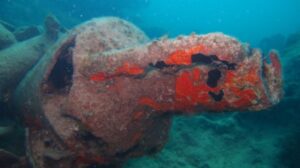
An archaeological mission from the Central Department of Sunken Antiquities at the Supreme Council of Antiquities, in Egypt has discovered the remains of a sunken ship from the third century BC in a site at the Mediterranean Sea, roughly 650 meters from the beach of el-Alamein, alongside various ancient jars.

The Ministry of Tourism and Antiquities announced on Saturday that the new discovery was made during the mission’s diving and archaeological survey work.
The Secretary-General of the Supreme Council of Antiquities, Mostafa Waziri, said that Alamein was of commercial importance on the northern coast in the third century BC, with many commercial ports there.
The discovery also provides new evidence of the status of Egypt and the region in terms of trade, economy and tourism, Waziri added, in addition to its scientific importance.

The head of the Egyptian antiquities sector at the Supreme Council of Antiquities Ayman Ashmawy, explained that during archaeological survey work in the region remains of the sunken ship’s wood were found alongside hundreds of pieces of pottery.
These included a large number of jars (amphoras) imported from the island of Rhodes in Greece, which were used in ancient times in the storage and transportation of wine.
Ashmawy noted that these jars were found resting on a sunken island next to the ship, which indicates that the ship sank after it collided with the island during its commercial voyage.

The mission completed the archaeological documentation of the finds using a three-dimensional imaging technique (Photogrammetry).
The Central Department of Sunken Antiquities is studying scenarios for dealing with the site’s archaeological finds and ways to safely remove them from the site and preserve them.
The mission will complete the underwater excavation work during the season to uncover more of the ship’s secrets.




